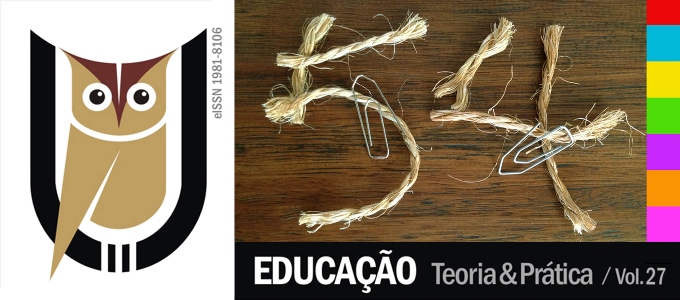TEACHING SYSTEM BASED ON APOSTILLE: A "TROJAN HORSE"?
DOI:
https://doi.org/10.18675/1981-8106.vol27.n54.p157-174Keywords:
Educational System Family and School. Strategies. Neoliberal Governmentality.Abstract
In this article, the objective is to understand the policy used for the implementation of the Family and School Education System (SEFE) in municipal schools in Florianópolis (SC) between 2009 and 2012. The method used was observation and participation in the courses Of continuing education of teachers, administered by SEFE, application of 82 questionnaires and eight interviews with teachers of schools that use SEFE. As theoretical contributions, we take the concept of strategies, according to Michel de Certeau; The production of subjectivities, in the sense of Michel Foucault; And, neoliberal governmentality, as indicated by Karla Saraiva and Alfredo Veiga-Neto. Among the results, we infer that SEFE adopts governmentality strategies with neoliberal characteristics, such as stimulus to competition, search for efficiency and quality, fulfillment of goals and practices of meritocracy. In addition, it is possible to identify that the use of the SEFE didactic material propitiates the emergence of a mechanically active professional, which can lead to a gradual process of loss of teacher autonomy. Keywords: Educational System Family and School. Strategies. Neoliberal Governmentality.Additional Files
Published
How to Cite
Issue
Section
License
Authors who publish in this journal agree to the following terms:
a) Authors assign copyright to the journal, with the work simultaneously licensed under the Creative Commons Attribution License that allows sharing of the work with acknowledgment of authorship and publication in this journal.
b) The policy adopted by the Editorial Committee is to assign copyright only after a period of 30 months from the date of publication of the article. After this time, authors interested in publishing the same text in another work must send a letter to the Editorial Committee requesting the release of the assignment of copyright and wait for a response.
c) This journal provides public access to all its content, since this allows greater visibility and reach of published articles and reviews. For more information on this approach, visit the Public Knowledge Project, a project that developed this system to improve the academic and public quality of research, by distributing OJS as well as other software to support the public access publication system to academic sources. The names and email addresses on this website will be used exclusively for the purposes of the journal and will not be available for other purposes. This journal provides open any other party  This work is licensed under a Creative Commons License
This work is licensed under a Creative Commons License











